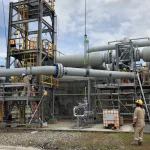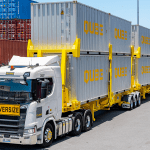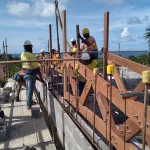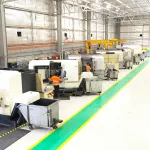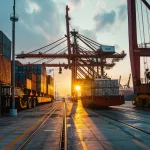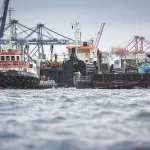COVID-19 is wreaking havoc in economies worldwide. We explore how Thailand, a country that relies on FDI inflows for a number of megaprojects, will cope.
Written by: Troy Schooneman, Partner and Head of International Practice Group, Kudun & Partners
The ongoing COVID-19 pandemic is causing chaos for countries worldwide, impacting public health systems, lifestyles and economies. Inevitably, this level of unpredictability has consequences for global trade and cross-border transactions.
Prior to the coronavirus outbreak in Hubei Province, China, at the beginning of this year, Thailand in particular was banking on significant foreign direct investment (FDI) inflows to help fund its economic development plans. But as the crisis heads towards its domestic and global peak, forcing the government to implement stricter measures, the future of these transactions – and by extension, Thailand’s economic future – is extremely uncertain.
BEFORE COVID-19
Thailand remains an economy on the brink of transformation. Having developed from its low-income, agrarian roots into a modern manufacturing hub known as the ‘Detroit of Asia’, its GDP is still heavily reliant on tourism and exports. Without a dramatic shift, it runs the risk of economic stagnation – known as the ‘middle-income trap’.
The Thai government has already outlined a comprehensive and ambitious plan to remedy this and help the country achieve high income status for the first time. ‘Thailand 4.0’ is an economic development model designed to turn the country into a high-technology, value-based economy by prioritising innovation in sectors such as automation and robotics, aviation and logistics, next generation automotive and affluent medical and wellness tourism.
Improving regional connectivity is critical to this plan, particularly along Thailand’s eastern seaboard. Both the Eastern Economic Corridor (EEC), a $46 billion infrastructure development, and Thailand’s position along China’s Belt and Road Initiative (BRI), the largest infrastructure project in world history, were set to address this.
However, both Thailand 4.0 and its associated infrastructure development projects rely on foreign investment. The Thai Board of Investment (BOI) was expecting to attract $50 billion in funding, mainly from overseas sources, over the next five years and had introduced a number of incentives to make this happen.
Between January and September 2019, FDI applications rose 69 percent year-on-year, with more the $6 billion being pledged towards the government’s target industries. However – crucially – these were not final investment decisions.
HOW BAD IS IT
COVID-19 is a global crisis: very few developed economies are immune to its effects. Its unpredictability is perhaps most evident in how the virus has spread: Asia Pacific was initially poised to be the worst-hit region, with Thailand singled out as a high-risk country due to its close geographic and economic proximity to China, but the virus has now spread to Europe and North America, where it has prompted nationwide lockdowns.
The situation in Thailand appeared to be relatively under control until recently. The number of cases was just 47 at the beginning of March, with just one fatality. However, there has since been a surge in transmissions and at the time of writing, the figures stood at 827 cases and four fatalities.
Thailand’s all-important tourism sector has suffered enormous losses. Tourism accounts for around 13 to 14 percent of the Thai economy and the outbreak happened in the middle of peak season. Arrivals fell 44.3 percent in February, with visitors from China dropping by 85.3 percent, and initial projections put the potential full-year loss in revenue at $1.52 million.
But of course, it’s not just the loss in domestic revenue that is cause for concern. The impact to economic partners will be felt in Thailand. Crucially, the country’s biggest foreign investors, China and Japan, are set to see much slower growth than previously forecasted.
Asia Pacific’s predicted growth rate has been cut to four percent and countries in this region will face an estimated $211 billion income loss. China will grow by just 4.8 percent (compared to a pre-COVID 19 forecast of 5.7 percent), while Japan and Thailand are among the economies that face possible recession.
WHAT IS THAILAND DOING?
Thailand is being as proactive as possible about limiting the spread of COVID-19 among its population and minimising the damage to the economy. On March 24, the government announced an emergency decree to contain the spread of the virus, giving them the power to reduce people’s movements and announce further shutdowns if necessary. The emergency status will be in place for one month, beginning March 26.
The military have also begun routine cleaning of public spaces, spraying the streets of Bangkok with disinfectant between the hours of one and five every morning. The newly built 100-bed Bang Khun Thian Hospital has been designated as the main hospital for treating confirmed cases, while the Universal Coverage for Emergency Patients (UCEP) has announced that COVID-19 patients will be able to seek treatment at the nearest hospital free of charge within the first 72 hours.
Finally, the government has announced a $12.74 billion stimulus package to help the country’s economy weather the storm and eventually recover. This includes the $4.6 billion of soft loans at two percent interest rate, just under a billion dollars from the security fund at three percent interest rate, relaxed debt repayments for businesses and a $600 million fund to help firms and workers affected by COVID-19, among other measures.
RECOVERY
The COVID-19 crisis is one that no individual, government, business or industry could have anticipated and one that no one was prepared for. With so little certainty available to investors, it is likely that most investment decisions and project executions will be delayed.
Companies may have committed expenditure prior to the outbreak in the expectation of FDI inflows later this year. It’s hoped that the government stimulus package will help offset some of this damage, but the full impact, again, remains to be seen.
It’s worth reiterating that Thailand is not alone in being affected by this. Virtually no developed economy in Asia Pacific, Europe or North America will emerge from this pandemic unscathed. FDI inflows worldwide are set to stagnate and projects will inevitably be delayed.
The best-case scenario is that COVID-19 delays, rather than derails, further investment and, ultimately, the economic transformation planned as part of Thailand 4.0.










